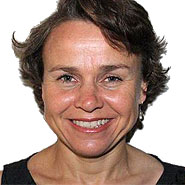Report cards: Why don’t teachers say what they mean?

Sifting through old school reports for a reunion provided a stark reminder of how things have changed.
“Cheryl doesn’t always work to capacity — perhaps less talk & more work in class would help,” wrote my year 10 Asian Studies teacher.
Our year 9 English teacher was equally direct. “Cheryl has continued to work well, though a little erratically this term,” she wrote. “She needs to rely more on herself and less on her friends, particularly in class.”
Instead of “talks too much”, “is disruptive” and “doesn’t try” you’ll get “enjoys the social side of school”, “is animated” and “has potential”.
When I attended Croydon High School in Melbourne’s outer east during the late 1970s and early 1980s, teachers told it like it was. I wasn’t a bad kid but my reports pulled no punches.
If you were naughty, teachers said so. If you talked too much, they told you. If you disrupted the class, you and your parents knew in no uncertain terms.
In contrast today’s reports, now being opened by parents around Australia, can be more sanitised than a bucket of pure Dettol. Political correctness means teachers struggle to alert parents to the most minor imperfection.
Reports are packed with euphemisms. Instead of “talks too much”, “is disruptive” and “doesn’t try” you’ll get “enjoys the social side of school”, “is animated” and “has potential”.

How it used to be: Cheryl Critchley’s Year 10 Asian Studies report card told it how it was. “Perhaps less talk and more work in class would help.”
It’s not the teachers’ fault. They’ve been beaten into submission by a PC education system and pushy parents who won’t accept that their child is anything less than perfect. Ironically these are the parents who need a few home truths.
A Victorian high school maths/science teacher says teachers are now advised against labelling a child naughty, disruptive or lazy due to potential legal liability.
As a result some teachers sanitise their reports while others, like her, say the child “at times displays behaviour that is disruptive”.
“You say a child is disruptive, the parent says they’re not, even though they are,” she says. “Parents will always complain because their little darling is perfect. You’ve got to be able to back it up.”
This teacher has senior classes where parents are fairly demanding of their children and usually appreciate the truth, but she says in the lower year levels teachers find it much more difficult.
“Lots of them … will sanitise it or parents will complain,” she says. “They (parents) all think because they’ve been to school they know everything. There’s this real blame game. It’s like fat people wanting to blame McDonald’s.
“If we kick them in the report the parents will be up kicking us.”
• What are your thoughts on students’ report cards today? Leave a comment here
Ideally this teacher would like to see fully truthful reports so students know where they must improve, but given the current system it isn’t always possible.
“The bottom line is this is all about legal liability,” she says. “You have to make sure that nothing’s slanderous.”
Teachers should be able to tell parents if their child is not trying, struggling with the work, disrupting others or misbehaving. How else are they going to improve?
I talked too much (still do) and mucked around after finishing my work. And the teachers told me. This kept me in check and I eventually knuckled down and did well in year 12.
These days, kids — and parents — who need a reality check are less likely to get it. If we want our kids to prepare our kids for the real world, teachers should be able to give them a figurative boot up the bum.
Like my year 9 English teacher, who wrote, “Cheryl is a very capable student. If her tongue hadn’t worked so hard she would have scored a higher effort mark.”

Telling it like it is … Cheryl Critchley’s Year 9 Media report card: “If Cheryl’s tongue hadn’t worked so hard she would have scored a higher effort mark”.
A primary teacher friend says she’d be “severely reprimanded” if she wrote that now. “Gone are the days where you could call a spade a spade, too much innuendo and political correctness,” she says. “But there is a good side to the change as well.”
On the plus side, reports are now much more comprehensive. Primary school teachers often produce a fully typed page about your child, much of it very informative.
Some of the old reports were minimalist to say the least. One science teacher summed up my whole term with: “A little talkative but has work (sic) fairly well.”
Most children respond to the opinions of trusted adults so school reports are a great opportunity for honest reflection – if teachers are free to do so.
We haven’t given up hope that this will once again be the case. My son has inherited my “social” gene and one teacher actually said so.
“At times Ben can be silly and distracted,” she wrote, before adding a sweetener: “But he always aims to please his teachers and overall is lovely to have in the classroom.”
If more teachers told it like it was we’d have a few less self-entitled brats who think the world owes them a living. And a few less deluded parents.
What would Cheryl’s report card have said today?
Comment then: “If Cheryl’s tongue hadn’t worked so hard, she would have scored a higher effort mark”.
Comment now: “Cheryl enjoys the social side of our media class”.
Comment then: “Cheryl needs to rely more on herself and less on her friends in class”.
Comment now: “Cheryl enjoys working in a team environment”.
Comment then: “Cheryl refuses to take direction and is often belligerent in class”.
Comment now: “Cheryl prefers individual activities and has forthright opinions”.
[polldaddy poll=7633658]








